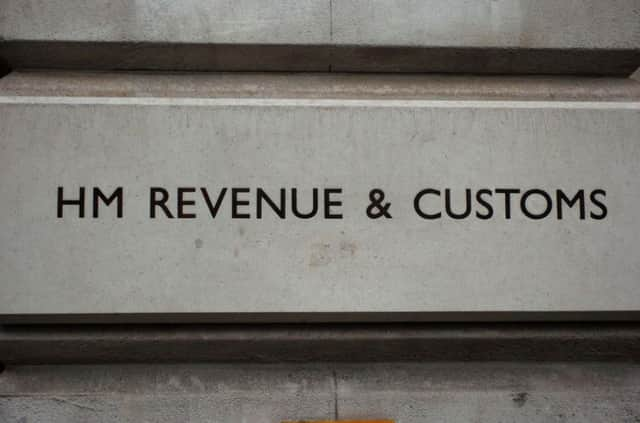Taxman’s new bank account powers to be curbed


The government has been consulting on plans to enable HM Revenue and Customs (HMRC) to recover cash straight from bank and building society accounts, including joint accounts and Isas, belonging to people or businesses who refuse to settle tax or tax credit debts.
The new measures will bring England, Wales and Northern Ireland in line with Scotland, where the legal system already has processes which allow HMRC to recover debts in this way.
Advertisement
Hide AdAdvertisement
Hide AdThe government said yesterday that all debtors who are being considered for this process will get a face-to-face visit from an HMRC officer, which will give them the chance to challenge the ruling and settle their affairs.
Those who pay up in full or agree to a repayment plan will not go through the process of having money taken from their bank account.
The visits will also help HMRC officers to identify people who are potentially vulnerable and offer them support.
People will also be able to appeal against HMRC’s decision to a County Court on specified grounds, such as hardship.
CONNECT WITH THE SCOTSMAN
• Subscribe to our daily newsletter (requires registration) and get the latest news, sport and business headlines delivered to your inbox every morning
David Gauke, Financial Secretary to the Treasury, said: “We’re strengthening the guarantees we can offer taxpayers that the powers will only be used when debtors have consistently refused to talk to HMRC and settle their debts.
“Their use will be subject to the toughest scrutiny and oversight possible.”
The plans, which were first unveiled in the Budget, aim to target what the government describes as a small minority of “can pay, won’t pay” debtors who owe at least £1,000.
They are expected to bring in around £100 million a year.
Advertisement
Hide AdAdvertisement
Hide AdBut fears have been raised that the moves, which mean that HMRC does not have to go to a court before taking such action, will lead to people who are vulnerable or have been wrongly targeted having their bank accounts frozen and will drive people to stash cash under the mattress.
The legislation to allow the direct recovery of debts (DRD) is expected to be taken forward as part of the 2015 Finance Bill.
HMRC estimates that DRD will apply to around 17,000 cases a year, with the average debt of those affected being £5,800.
Only debtors who will be left with a minimum of £5,000 across their accounts would be made subject to a DRD.
Around half of these cases would involve debtors who owe more than £20,000.
SCOTSMAN TABLET AND IPHONE APPS